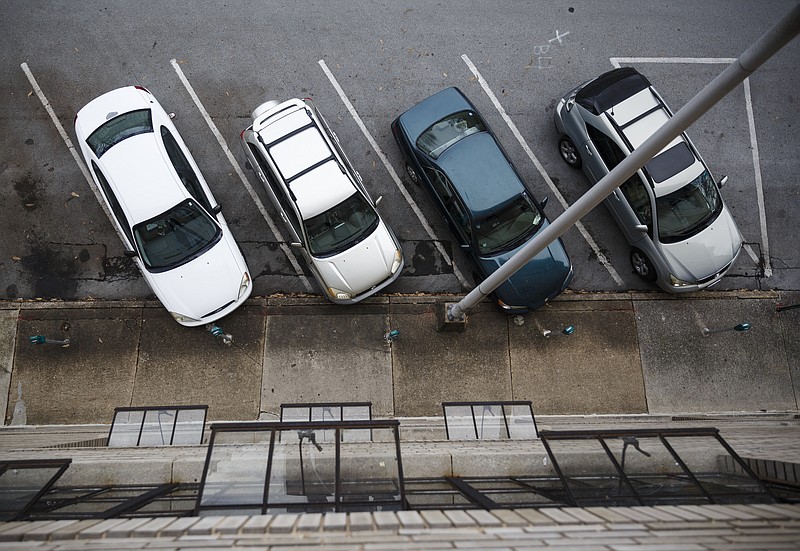The most in-depth parking study of downtown Chattanooga in about two decades is kicking off as the central city grapples with nearly $1 billion in planned development and a doubling of residents.
"There's so much growth, all the new construction downtown; we're trying to get ahead of the curve," said Kim White, who heads the nonprofit redevelopment group River City Company.
The $250,000 parking effort, in addition to looking at the city's core, will focus on the Southside and the M.L. King corridor stretching to UTC and to Erlanger hospital, where past such downtown studies haven't ventured, White said.
In light of the growth plans of the hospital and the University of Tennessee at Chattanooga, each is helping to fund the comprehensive review, along with CARTA, the city, Siskin Hospital for Physical Rehabilitation, River City, and the Benwood and Lyndhurst foundations, she said.
The study, by San Francisco-based consultant Nelson/Nygaard Consulting Associates, will look at how downtown parking will change over the next decade and identify actions to support central city growth.
Chattanooga developer Chris Curtis called parking availability "the lifeline for further residential and retail development."
"You have to have it," said Curtis, who last year opened the $41 million Douglas Heights housing development off M.L. King Boulevard near UTC. "It's a real issue."
Dale Wilson, the owner of Blue Ivy Flowers and Gifts downtown, said central city parking needs improvement and she'd like to see more accessible, free, short-term parking for quick errands.
"Not to be there all day, but to run in and pick up some flowers," said the Georgia Avenue business owner. "There's a lot of parking around us, but everyone has to pay. We have people ask us for change for the meters all the time."
Still, Dylan Mikres, who was at The Camp House downtown, said it's a lot easier to find parking in Chattanooga than in Nashville.
"I think the only place it could really be improved is the Market Street area, but there's not really real estate for that," he said.
Henry Glascock, who owns an auction business that deals with properties in downtown Chattanooga, said the central city is moving more in a residential direction.
"That eats up a lot of parking," he said. "It's clear that market value depends heavily on parking."
Some 2,500 apartments, 260 condominiums and more than 1,000 beds for UTC students are projected for downtown over the next few years, according to announced projects.
Also, more than 700 hotel rooms are slated to come online, along with nearly 600,000 square feet of commercial space, figures show.
White said the study will not just look at parking vehicles, but examine future transit ideas as well.
"How do we use technology [in parking]?" she asked. "A lot of cities are ahead of us."
Amy Donahue, River City's director of marketing, cited the use of parking apps and real-time signage. She said CARTA's Frazier Avenue garage has a sign that tells motorists how many spaces are available.
The study will look at parking supply and demand, inventory public and private facilities and the groups served by the facilities, along with utilization by day and hour for potential shared-use opportunities.
Future parking demand will be analyzed with regard to existing zoning, current and future development, and special events that strain the parking supply.
In addition, the study will identify and evaluate the potential locations for added parking.
"We know that as downtown Chattanooga continues to grow and change, strategic parking solutions will be vital for all who enjoy our city - residents, workers and visitors," White said.
She said solutions for parking can be implemented both quickly and in the long term. Also, future parking demand will be influenced by the rise of car share, public transportation options, and services such as Uber, said White.
"We want to make sure we are planning for the future and making smart decisions about how limited downtown space is utilized," she said.
Staff writer Emmett Gienapp contributed to this story.
